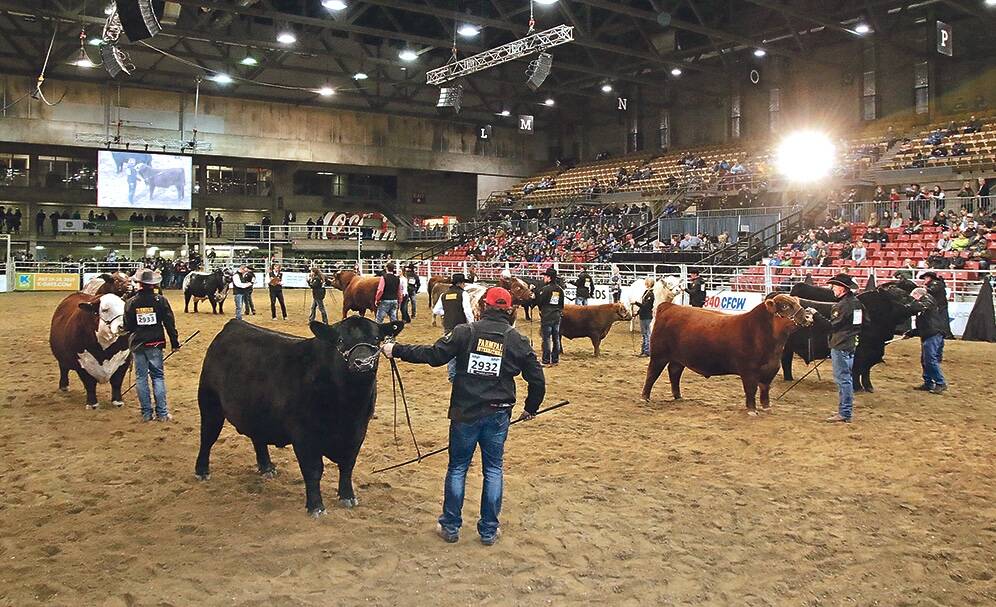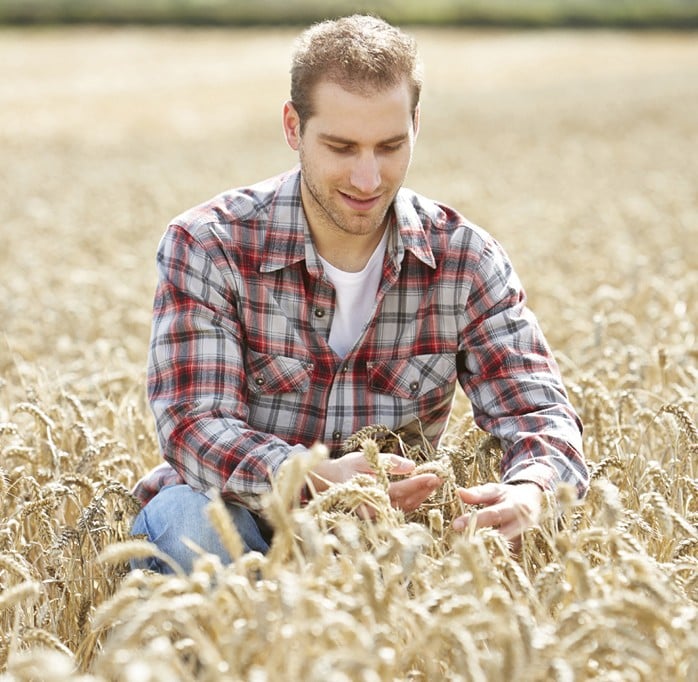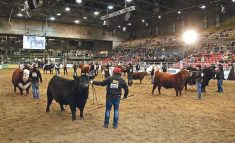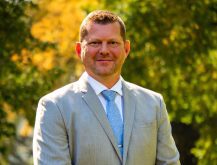On a mission to feed the world through smarter farming practices, a Three Hills agronomist recently toured southern Alberta with some of the world’s most curious farmers.
“The best way to feed the world is to teach farmers new practices,” said Steve Larocque. “The best way to do that is to get outside of your business, your country, and go learn from others.”
Fifteen years ago, Larocque received a Nuffield scholarship, which offers those in the middle of their ag career a chance to research some aspect of farming. He chose controlled traffic farming and he has become one of the country’s leading proponents.
Read Also

Farmfair International boosts accessibility with weekend schedule shift
Farmfair International is changing its scheduling format to include the weekend and hopefully attract even more attendees.
Last month, it was his turn to play host as he led eight Nuffield scholars — six from Australia and one each from Zimbabwe and Ireland — on a tour of multiple farms across Alberta.
“All farmers have similar problems — weeds, insects, disease, weather, climate policy, access to labour and access to capital,” said Larocque, adding the group will also visit Singapore, France, England, Washington D.C. and Iowa as part of a five-week tour.
“So, they’ll go see the policymakers here, they’ll meet with the deputy minister of agriculture here, and then we get to show them around.”
The most important lessons Larocque has learned since becoming involved with Nuffield Canada is how government policy affects farmers and food production.
In many parts of the world, the effort has been poor.
“Africa hasn’t even started,” he said. “Eastern Europe hasn’t even started. Parts of South America haven’t even started, productivity wise. We have a long way to go.
“We can feed a lot of people but it’s the policymakers that put the roadblocks in place.”
The Nuffield Farming Scholarships Trust is a U.K.-based charity that aims to bring positive change to agriculture through the development of future farming leaders. It sends them on international tours to learn and share knowledge. Canada is one of nine countries with Nuffield programs.
The organization and its members have influenced his farming and agronomy business, said Larocque.
“I still do work internationally, in Ukraine and France, so it has really accelerated my business and where I get to go and who I get to rub shoulders with,” he said.
That’s what attracted tour participant Ranga Huruba, and he shares Larocque’s desire to boost farm productivity by sharing knowledge.
“In terms of Nuffield, it is more about the work I want to do within communities, which is what my family has been involved with for a very long time — trying to make life better for other people,” said the 35-year-old from Zimbabwe. “My topic is trying to build resilient farming systems in a rural sense.”

Researching communal and small-scale beef production is Huruba’s passion. He has a rangeland ecology background and is a research manager for Debshan Ranch, an 8,000-head private cattle and wildlife operation in southwestern Zimbabwe that employs 200 people.
“Of course, what I’ve figured out while travelling is our rural areas and European rural areas are totally different things,” he said. “Our rural areas are properly marginalized — low productivity.”
Improving local food production and farmer income is Huruba’s long-term goal, while at the same time trying to preserve ecosystems.
Zimbabwe, once an agricultural powerhouse, is one of the world’s poorest countries after decades of strife, conflict and dictatorship.
But there is the will to change, said Huruba.
“I think people are finding common ground and trying to work together because I think feeding the nation comes first before anything else,” he said. “I think the government is trying to engage all stakeholders and the international community to try to resolve issues that might be there.”
Zimbabwe has more than four million hectares of arable land (9.8 million acres) but a quarter of it is still cultivated using animal and manual power. An ill-fated Zimbabwe’s land redistribution program saw large numbers of farms fall into disrepair and the country has struggled to become food self-sufficient.
Canadian agriculture policy and the way farmers influence their own outcomes have impressed Huruba. He said it’s possible to apply some of the principles to Zimbabwe.
“There is a need to respect policy,” he said. “There is a need to have the right voices on the platforms that can get the policy frameworks going. Farmers’ voices need to be out there. They need to be the drivers of their destiny, not to put it in the hands of other people. It’s better here than back home.”
Since 1947, the Nuffield Farming Scholarships Trust has awarded scholarships to more than 1,000 members of the food, farming, horticulture and rural industries to study various topics.
For more on the Canadian chapter, go to nuffield.ca. Many of the scholars’ reports are available at the website, including Larocque’s. They cover a wide range, including remote sensing in crop production by Albertan Kristina Polziehn and an in-depth look at grazing by Manitoba producer Ryan Boyd.















